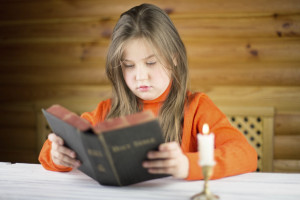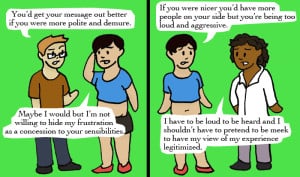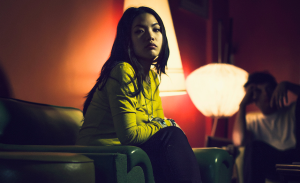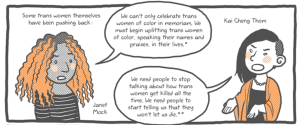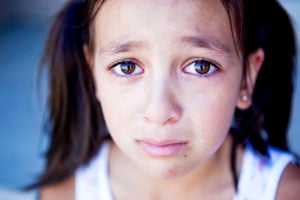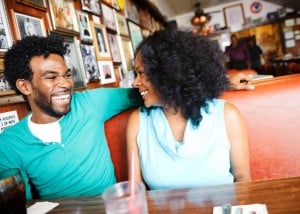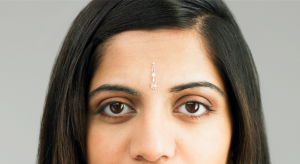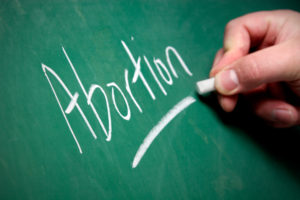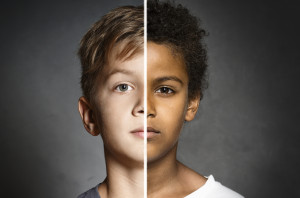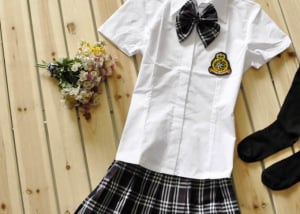Original published on Fembot and republished here with their permission
My parents did not send me to Catholic school because I was deemed a bad child in my youth. They didn’t do it to discipline me.
They sincerely thought Catholic school would help to build and instill good values within me. I went to church twice a week, once at school and once with my family, and I never questioned what was presented to me.
I believed what I was told and obeyed without question.
On one hand, my parents had a very good point. Certain parts of Catholicism encourage helping the less fortunate and being honest in the face of dishonesty. Religion and faith are meant to be guidelines for how to live a just way of life. They can serve as a comfort in times of distress.
However, when the values of a religion, such as Christianity or more specifically, Catholicism, become a stifling and controlling force, it is a problem that is rooted in societal values.
As a California girl, with nine years of a Catholic school education, I can tell you that I once considered myself religious. I used to follow the rules of my religion to the letter and obey everything I was told.
I was taught to remain abstinent; leading me to be scared of sex. I thought that if I engaged in premarital sex, I would suffer fatal diseases and have seven children to support.
I thought supporting gay rights would make me a lesbian and believed that being a lesbian was in itself, wrong. I thought anything that my church deemed wrong would send me to the fiery pits of Hell.
Last year, I was a senior in high school and, like a lot of high school seniors, I had no idea where I was going to attend college. The one school I had my heart set on had let me down. I had applied to a couple of schools in North Carolina, basing my entire opinion on North Carolina off the coolest, most liberal town in the state, Asheville. After visiting my school, UNC Wilmington and the area around it, I thought, “Hey I could do this. It’s not so bad.”
One thing I discovered with coming to college in the South was the religious fervor that runs rampant in many parts of the area. I think religion, in general, is a great comfort to many, and there are many wonderful religious people out there. If you want to believe in a deity and practice your faith, I am totally okay with that.
What I am not okay with, however, is the idea of someone telling me how to live my life, or saying that my sex is inferior and using religion as a basis for that sexist opinion. I am not okay with anyone or any group attempting to control who I am, overtly or passively.
One day, this desire to remain myself was tested. I was walking around campus with my roommate minding my own business when I saw a gathering at the amphitheater. Curious, I walked over and saw a religious group holding signs advertising the people who were sinful and going to Hell including, but not limited to, homosexuals, those who drink, those who have premarital sex, and liberals.
One of the members of the group refused to even talk to a woman. A man would call any girl wearing shorts a whore, even though it was 85 degrees and humid. And this was of course because men know better than women, I mean it says so in the Bible that women are sinful, right?
Another time, I was having a discussion with a friend of mine and he asked me what faith I follow. Being the open person I am, I told him about how I choose not to follow a faith or believe in a deity. Rather than just accepting my answer or even initiating a debate, he invited me to come to church and learn more about Jesus.
My friend was raised to believe that the be all and end all was believing in Jesus. He was taught that people who do not believe are essentially sinners and cannot be saved.
In no way was he trying to be hurtful or offensive, this is how he was raised, yet due to this upbringing he was not taught that it’s simply not OK to treat people like this.
Often, people of strict faith or upbringing are taught that others are inherently wrong if they do not think or act the way that they do. They are taught to defend their faith at any cost, even if it means denying the basic human rights of others, or even verbally attacking them.
This kind of behavior is often seen in abortion protestors who will commit violent acts and say terrible things because others are going against their personal beliefs. Rather than trying to understand the views of others, they are taught that only they can be right and everyone else must abide by what their faith community dictates.
Here is my big problem with the two scenarios I told you about earlier. Aside from the idea that I can’t be a good person without Jesus telling me what to do, I have a real problem with cis-men thinking they know better than me, particularly about female issues, and mansplaining things to me.
I know this might come as a shock, but I am a big girl and I can make my own choices about what faith I choose to follow or to disregard. I do not need anyone, even a man (whoa!) telling me how I should be living my life.
Maybe it was going to Catholic school or maybe it was growing up. But I have a serious problem with organized religion, such as Catholicism, as an institution. In my personal experience, I have not seen these types of religion as a unifying and hopeful force, which is what I believe religion is supposed to be.
Rather, I have seen them often used as a method of control. Perhaps the voice of the fundamentalists overpowers those who are truly good religious people. I have been learning about Jesus since preschool. I could probably recite half the bible for you at this point. I am a big girl. I can choose to believe or not believe in what I want. And from my experience, I have experienced organized religion as a sexist force.
However, I do believe religion does have the best intentions. I believe it is meant to be a unifying force that can bring hope. In order for religion to truly be fair though, there needs to be a change within the institution to become more inclusive.
I see my feminism as a tool to combat against oppressive forces within religion and to help make it a more equal institution.
If you are religious and want to learn more about making religion a more equal institution, I encourage you to learn more about feminist theology. Feminist theology combines religion with feminist theory and strives to make religion a more inclusive and equal institution. I highly recommend looking further into it if you want to incorporate your feminism into your faith.
[do_widget id=’text-101′]
Katherine Rendon is a second year student at the University of North Carolina Wilmington, pursuing a degree in English and Environmental Studies. When not arguing with people at parties over the importance of feminism and/or veganism, she can be found reading, binge watching Netflix, at a concert, or tweeting long rants. She doesn’t go anywhere without a reusable water bottle and firmly believes that selfies are important.
Search our 3000+ articles!
Read our articles about:
Our online racial justice training
Used by hundreds of universities, non-profits, and businesses.
Click to learn more
Most Read Articles
- « Previous
- 1
- …
- 30
- 31
- 32


